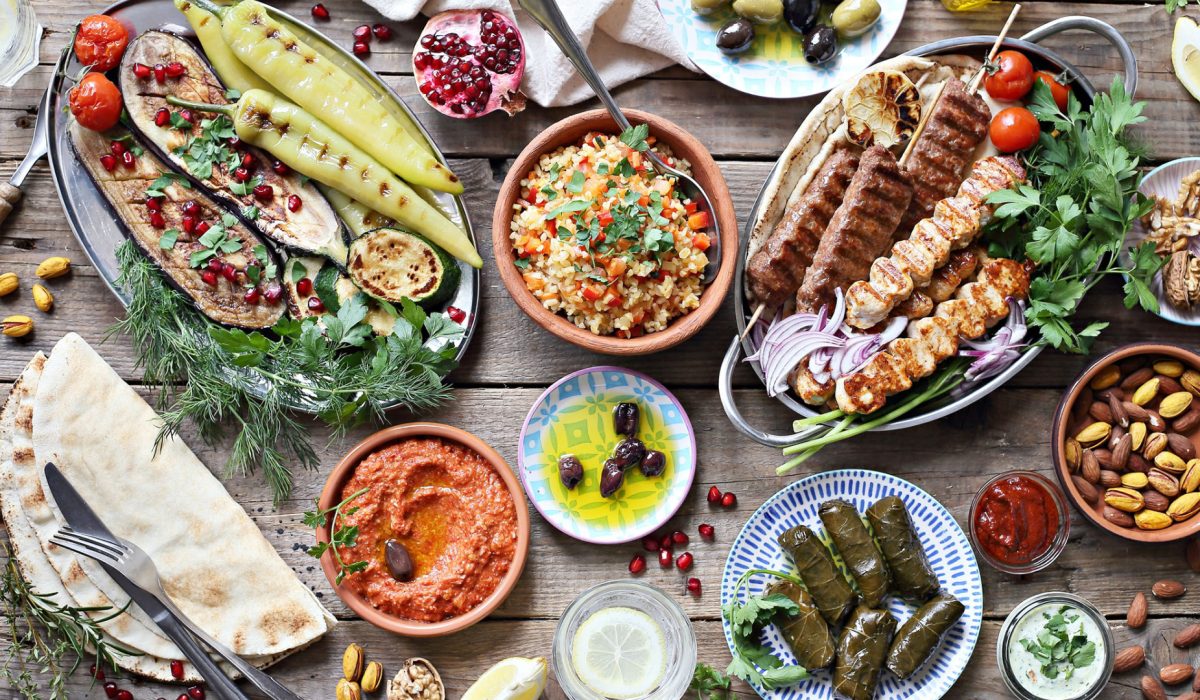
Exploring Mediterranean Cuisine: Must-Try Staples from the Sun-Drenched Coast
The Mediterranean region is renowned for its vibrant and diverse culinary traditions, offering a rich tapestry of flavors that have captivated food lovers worldwide. From the sun-drenched coasts of Spain to the aromatic markets of Morocco, Mediterranean cuisine is a celebration of fresh, wholesome ingredients and time-honored cooking techniques. In this blog post, we will explore some of the must-try staples of Mediterranean cuisine, delving into the unique characteristics and cultural significance of each dish. Whether you're a seasoned foodie or a curious newcomer, this guide will provide you with a deeper understanding of the culinary treasures that define this beloved region.
The Heart of Mediterranean Cuisine: Olive Oil
Olive oil is often referred to as the liquid gold of the Mediterranean, playing a central role in the region's culinary identity. Its rich, fruity flavor and numerous health benefits make it a staple in Mediterranean kitchens.
The Health Benefits of Olive Oil
Olive oil is packed with monounsaturated fats, which are known to reduce the risk of heart disease. Studies have shown that regular consumption of olive oil can lower cholesterol levels and improve overall cardiovascular health. Additionally, olive oil is rich in antioxidants, which help combat inflammation and protect against chronic diseases.
Cooking with Olive Oil
In Mediterranean cooking, olive oil is used in a variety of ways, from drizzling over salads to sautéing vegetables. Its high smoke point makes it ideal for frying, while its robust flavor enhances the taste of grilled meats and fish. For a simple yet delicious dish, try drizzling olive oil over freshly baked bread with a sprinkle of sea salt.
A Taste of the Sea: Seafood Delights
The Mediterranean Sea is a bountiful source of fresh seafood, which is a cornerstone of the region's diet. From grilled octopus to savory paella, seafood dishes are celebrated for their simplicity and flavor.
Grilled Octopus: A Greek Specialty
Grilled octopus is a beloved dish in Greece, known for its tender texture and smoky flavor. The octopus is typically marinated in olive oil, lemon juice, and herbs before being grilled to perfection. Served with a side of fresh vegetables or a simple salad, it is a quintessential Mediterranean meal.
Spanish Paella: A Feast for the Senses
Paella is a traditional Spanish dish that combines rice, saffron, and a variety of seafood, such as shrimp, mussels, and clams. Cooked in a large, shallow pan, paella is often served at family gatherings and celebrations. Its vibrant colors and rich flavors make it a true feast for the senses.
The Versatility of Mediterranean Vegetables
Vegetables are a vital component of Mediterranean cuisine, celebrated for their freshness and versatility. From roasted eggplant to stuffed peppers, Mediterranean dishes showcase the natural flavors of seasonal produce.
Roasted Eggplant: A Middle Eastern Favorite
Roasted eggplant is a popular dish in Middle Eastern cuisine, often served as a dip or side dish. The eggplant is roasted until tender, then blended with tahini, garlic, and lemon juice to create a creamy, flavorful spread known as baba ghanoush. This dish is perfect for dipping with pita bread or fresh vegetables.
Stuffed Peppers: A Mediterranean Classic
Stuffed peppers are a classic Mediterranean dish, featuring bell peppers filled with a mixture of rice, herbs, and sometimes meat. Baked until the peppers are tender, this dish is both hearty and nutritious. For a vegetarian version, try using a filling of quinoa, chickpeas, and feta cheese.
Sweet Endings: Mediterranean Desserts
No exploration of Mediterranean cuisine would be complete without indulging in its delightful desserts. From honey-drenched baklava to creamy panna cotta, Mediterranean sweets are a testament to the region's love of simple, yet satisfying flavors.
Baklava: A Sweet Symphony
Baklava is a traditional dessert found throughout the Mediterranean, made with layers of phyllo pastry, nuts, and honey. Its sweet, nutty flavor and flaky texture make it a favorite treat during holidays and special occasions. To make baklava at home, layer sheets of phyllo dough with a mixture of chopped nuts and spices, then bake and drizzle with honey syrup.
Panna Cotta: An Italian Delight
Panna cotta is a creamy Italian dessert made with sweetened cream and gelatin. Often flavored with vanilla or citrus, panna cotta is served chilled and topped with fresh fruit or a berry coulis. Its silky texture and delicate flavor make it a perfect ending to a Mediterranean meal.
Conclusion
Mediterranean cuisine offers a rich and diverse array of flavors that reflect the region's cultural heritage and commitment to fresh, wholesome ingredients. From the robust taste of olive oil to the delicate sweetness of baklava, each dish tells a story of tradition and innovation. As you explore these culinary staples, consider incorporating them into your own cooking repertoire. Whether you're preparing a simple salad or a lavish seafood feast, the principles of Mediterranean cuisine—freshness, simplicity, and balance—can guide you in creating delicious, healthful meals. So, gather your ingredients, embrace the Mediterranean spirit, and embark on a culinary journey that celebrates the sun-drenched coast.